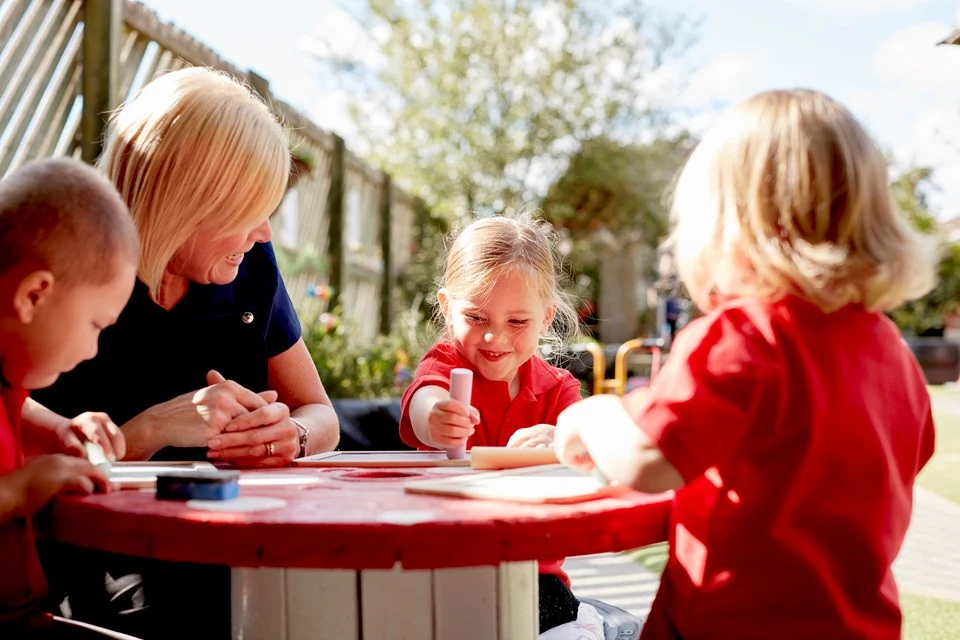Early childhood education (ECE) is foundational to a child’s development, serving as the bedrock for lifelong learning and well-being. Institutions like Busy Bees Mottingham recognize importance of early childhood education in child’s future. These early years are not merely about mastering academic basics; they encompass nurturing the whole child—developing social skills, emotional resilience, and cognitive abilities. As we progress through 2024, the focus on high-quality early childhood education has become more pronounced, driven by extensive research and an improved understanding of its long-term benefits.
Cognitive Development in Early Childhood
Cognitive development during early childhood is crucial for a child’s ability to think, explore, and solve problems. Busy Bees Mottingham’s curriculum, for example, is tailored to stimulate curiosity and foster critical thinking. Research consistently shows that children engaged in high-quality early education programs exhibit enhanced cognitive outcomes, such as improved attention, memory, and problem-solving skills—key components for academic success later in life.
Social and Emotional Learning
Social and emotional learning (SEL) forms the core of effective early childhood education. Institutions like Busy Bees Mottingham emphasize the development of emotional intelligence, helping children to understand and manage their emotions, develop empathy, and build strong interpersonal relationships. SEL is not only crucial for school readiness but also for long-term success in both personal and professional spheres. Studies suggest that children who participate in SEL programs display better social behaviors, reduced emotional distress, and a more positive attitude toward school.
Physical Development and Health
Physical development is another critical aspect of early childhood education. Programs at institutions like Busy Bees Mottingham integrate physical activities into daily routines to ensure that children develop both gross and fine motor skills in a safe and stimulating environment. Facilities such as outdoor spaces and sensory rooms encourage physical exploration, which is essential for overall health and well-being. Regular physical activity during early childhood is linked to better physical health, enhanced motor skills, and even improved academic performance in the later years.
Language and Communication Skills
Language development is a key focus in early childhood education. Programs are structured to enhance children’s vocabulary and communication skills through interactive storytelling, songs, and conversations. Early language skills are strong predictors of later reading abilities and overall academic achievement. Children exposed to rich language environments in early childhood are more likely to excel in literacy and possess better communication skills as they grow.
Preparing for School
The transition from early childhood education to formal schooling is a significant milestone in a child’s life. Comprehensive preparatory programs, such as those offered by Busy Bees Mottingham, familiarize children with the school environment, routines, and expectations. This preparation reduces anxiety and equips children with the skills and confidence needed for academic success. Structured activities and foundation classes ensure that children are well-prepared for the next stage of their educational journey.
Read More: Busy Bees Mottingham: A Guide to the Local Nursery and Preschool in 2024
Supporting Working Families
ECE also plays a crucial role in supporting working families. High-quality care and education allow parents to pursue their careers with the assurance that their children are in a safe, nurturing, and stimulating environment. This support is particularly important in today’s fast-paced world, where balancing work and family responsibilities can be challenging. Reliable and high-quality early education benefits not only the children but also contributes to the economic stability and well-being of families.
Community Impact and Economic Benefits
Investing in early childhood education yields substantial economic benefits for the community. High-quality early education programs contribute to the long-term economic success of a region by producing a more educated and skilled workforce. Additionally, children who receive quality early education are less likely to require special education services, repeat grades, or engage in criminal activities later in life, leading to significant cost savings for society as a whole.
The Role of Technology in Early Childhood Education
In 2024, technology continues to play an increasingly important role in early childhood education. Institutions like Busy Bees Mottingham integrate age-appropriate technology, such as interactive smart boards and educational apps, to enhance learning experiences. These tools support and enrich traditional teaching methods, providing children with new ways to explore and engage with the world around them. However, it’s essential to balance screen time with other activities like outdoor play and hands-on learning.
Conclusion
The significance of early childhood education cannot be overstated. It is during these formative years that the foundation for lifelong learning, health, and well-being is laid. Institutions like Busy Bees Mottingham are committed to providing high-quality early education that not only prepares children for academic success but also nurtures their overall development. Investing in early childhood education is an investment in the future of children and communities.
FAQ about Importance of Early Childhood Education
What is the most important aspect of early childhood education?
The holistic development of the child, including cognitive, social, emotional, and physical growth, is the most important aspect.
How do institutions like Busy Bees Mottingham prepare children for school?
They offer comprehensive preparatory programs that familiarize children with school routines and expectations, ensuring a smooth transition to formal education.
Why is social and emotional learning important?
Social and emotional learning helps children manage their emotions, build relationships, and develop empathy, which are crucial for both academic and personal success.
What role does technology play in early childhood education?
Technology is used to complement traditional teaching methods, providing interactive and engaging learning experiences while ensuring a balance with physical activities.
